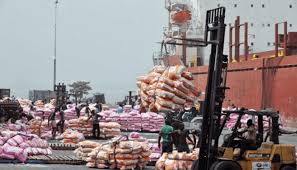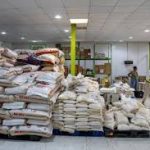The waiver granted by the Federal Government for the importation of essential food items, including maize, rice, and sorghum, among others, was N97bn between 2024 and the first quarter of 2025, data sourced from the Nigeria Customs Service showed.
In the document, the Comptroller-General of Customs, Adewale Adeniyi, explained that in line with the Federal Government’s efforts to address food security challenges, the service implemented exemptions on imports of essential food items like maize, rice, and sorghum.
Last year, it was reported that as part of efforts to alleviate the pressure of food inflation on the Nigerian populace, the Federal Government launched a temporary import duty waiver on staple foods.
The waiver, which was to last from July to December 2024, aimed at reducing the cost of key imports such as rice, wheat, maize, and sugar, in a bid to curb skyrocketing food prices and provide economic relief to millions of Nigerians struggling with the high cost of living.
But despite the government’s good intentions, the import duty waiver seems to have had minimal impact, as prices of food remained high, supply chains were disrupted, and the country’s dependency on food imports showed no signs of abating.
However, in the document from the NCS, Adeniyi revealed that the government, through the customs service, waived over N97bn for food staple imports, stressing that this led to food price reduction in Nigeria.
“The NCS’s duty exemptions on food imports have contributed to recent food price reductions, with effects seen both immediately and over time. The Q1 2025 waivers on maize, N45.3bn free-on-board value, rice N751.6m, and sorghum, N2.3bn, also contributed to lower prices by 12 -18 per cent this year.
“At the same time, the larger exemptions from 2024 on rice, N45.9bn free-on-board value and wheat, N2.8bn, are now showing their full effect after taking time to work through the supply chain,” he said.
The CGC stated that the combination of current and past exemptions helps explain the steady improvement in food affordability, stressing that the 2024 measures initially faced delays in reaching markets but eventually increased supplies, “while the 2025 waivers provided additional support.”
Adeniyi maintained that together, these policies have helped to stabilise prices by improving availability at different times, showing how customs adjustments can influence food costs both in the short term and over longer periods.
“The NBS price data reflects this pattern, where the benefits of duty relief emerge gradually but add up to make food more affordable,” he said.
The NCS boss mentioned that this year, 2025, the service would accelerate the aggressive modernisation of its processes and procedures through the launch of innovative solutions designed to enhance the stakeholder experience.
Reacting to the development, a seasoned freight forwarder, Mr Abayomi Duyile, said that despite these waivers, the prices of these products were still high.
“The government, because of hardship, has now introduced waivers on wheat, sorghum, husked rice, among others. So the NCS didn’t collect duty on this because of the waiver, so they have to calculate the total volume of these imported products that came in that period.
“Though we have not been able to see the impact of the waiver because the price of these products didn’t come down. We didn’t feel the impact because the rice waiver was for husked rice and not the finished product. If the waivers were on finished products, we would have felt the impact. There is not much impact if you go to the market, the prices are the same,” he said.
A chieftain of the National Association of Government Approved Freight Forwarders, Mr. Nnadi Ugochukwu, urged the service to be specific with the kind of waiver they are talking about.
“They should be more specific about the type of waiver they are talking about,” he said.










